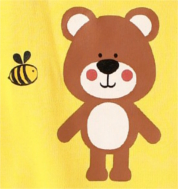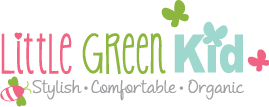
Our balcony has been hosting a beehive ever since we have been living here. Friends have hypothesized, tongue in cheek, that it is because our home has an air of serenity and silence. Others have petitioned us for honey and sundry society has been generally worried about bee stings. We however, got curious about our new neighbors / squatters and decided to find out a little more about them.
We met friends who cultivated honey bees and sold exotic products such as Litchi Honey and Coriander Honey and other friends who lived off the beaten path on a farm, who had bee hives a plenty. And yes, the resident bear or two across their property who made a visit to their farm when the jackfruit was ripe and made a feast of it by dipping each piece of fruit into the freshly liberated honey. Yes, its true, we saw the strewn fruit with our own eyes.
Across these conversations, one comment that was repeated by both bee professional and farm hand was that bees were getting scarce. We had a look of incredulity. Surely not, we thought. We have bees on our balcony! Not one to leave things unanswered we did our own research and the findings were very surprising. The proliferation of mobile phone towers, pollution and pesticides in plants has posed a grave threat to bee colonies. Its even got a name - CCD. Not Cafe Coffee Day - its Colony Collapse Disorder! Sadly.
A word about bees - outside of producing honey, bees are key pollination agents and therefore important, unpaid agricultural workers, dutifully pollinating the plants in a field producing those wonderful vegetables and grains. An absence of bees would mean that we have no reliable way to pollinate other than the wind and this threatens our very food supply and would gravely bring diversity of crop down. One of our bee keeper friends exported few honey bee colonies from India to Europe as their own bee population had dwindled and they lost a particular species altogether. Colony collapse disorder is very much part of the modern lexicon deserving an episode of its own with the recent Sherlock Holmes TV series, Elementary.
You are wondering what of our jackfruit loving furry friend the bear. We hadn’t forgotten him. With foliage fast disappearing, our vegetarian friend is facing encroachments into his habitats. Rampant tree felling and loss of foliage is threatening his food source and survival.
So these two uncommon friends, battling for survival in this modern world, became our muse for our collection on the Bear and the Bee, or better put, the Bee Bear collection. We have carefully chosen turquoise and yellow with an attempt to foster color diversity across gender. Little girls and boys can both enjoy either color and the cute prints on them. We used organic cotton, because there is no greater way to celebrate nature. Our collection has no plastic tags and no zippers, because we want you to tell your children what a wonderful future you are laying out for them. Lastly, our packing uses a compost bio degradable plastic bag made by our partners at Green Plastics in Madhya Pradesh. It is compost bio degradable which means you can control your recycling as it biodegrades completely. The bags are food safe too so you can reuse these bags as many times as you want for anything you want. When you are done with them you could lay them in your garden or flower pot and they will decompose completely.
So when you open your package, tell you child a little story about the bee and the bear, share a moment with honey and pancakes and relive the bare necessities of life! (hint: Jungle Book)
Cheers
Little Green Kid

